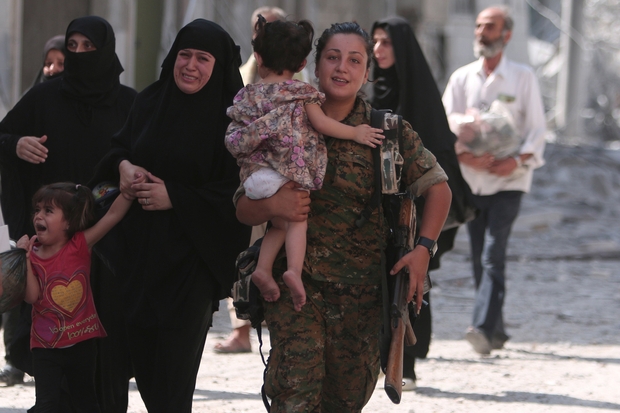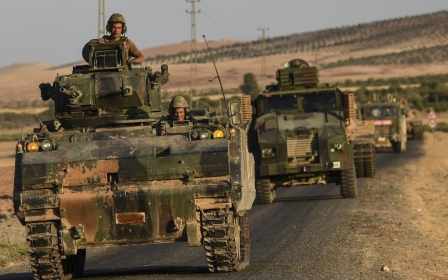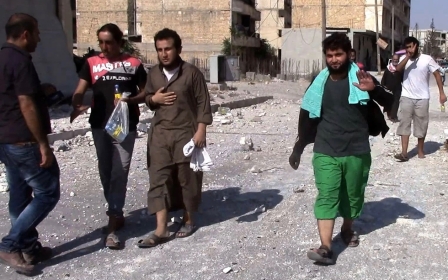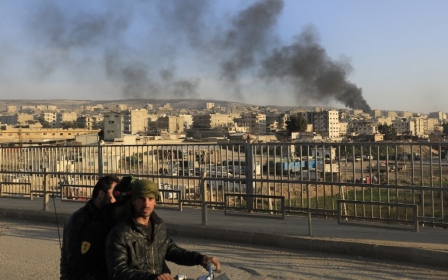Turkey, US fail to resolve differences over YPG, to continue talks
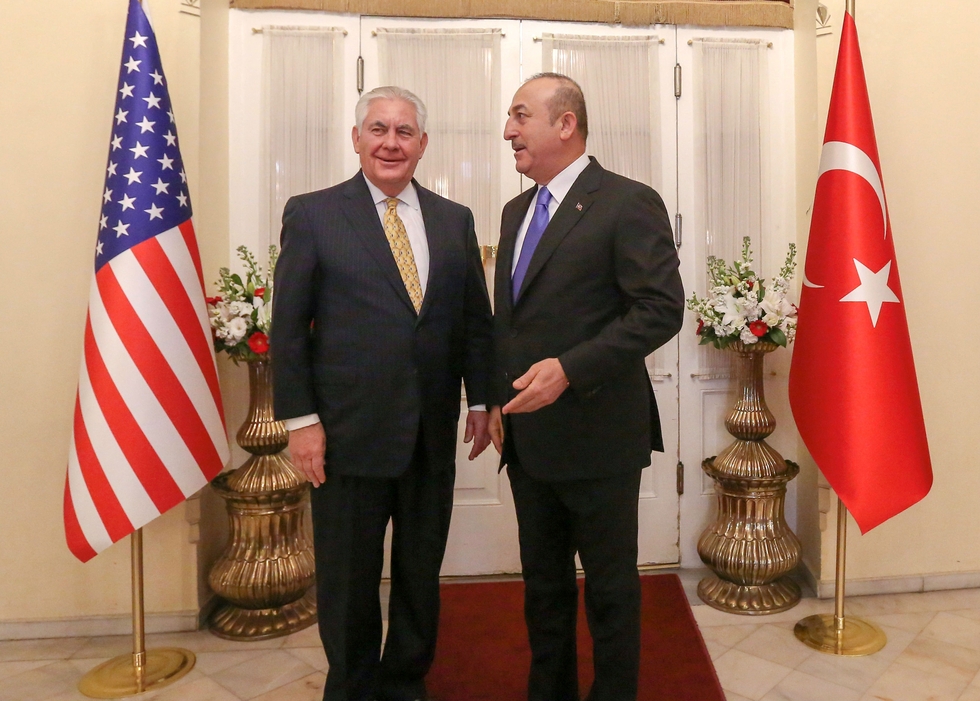
ISTANBUL, Turkey – Ankara and Washington announced on Friday that they would establish mechanisms to prevent ties from deteriorating further, but remarks by Turkey’s foreign minister and his US counterpart showed major differences remain - particularly on the role and nature of the Syrian-Kurdish YPG militia.
Turkish foreign minister, Mevlut Cavusoglu, told reporters that Turkey and the United States had agreed to set up various platforms for the two sides to debate issues away from the media spotlight during what he called a “crucial juncture” for ties between the two nations.
“Turkey and the US have agreed to set up a series of mechanisms to resolve differences and head back toward a path of normalcy in relations. The first meeting as part of these new mechanisms will be in early March," he said, at a joint press conference with his US counterpart.
Cavusoglu listed Turkey’s grievances regarding US cooperation with the YPG, which Ankara considers a terrorist group and an extension of its own PKK, listed as terrorist by the US as well.
He also lamented Washington’s refusal to extradite Fethullah Gulen, the US-based Turkish preacher alleged to have orchestrated a failed coup in 2016.
Tillerson agreed with Turkey’s concerns about threats to its borders but refused to call the YPG terrorist and urged Turkey to avoid civilian casualties in its offensive against the YPG in Syria’s Afrin region.
“We understand Turkey’s concerns about threats to its borders and want to help protect its border like any other NATO border. But we call on Turkey to also consider harm to civilians during its response to these threats,” said Tillerson.
“Our focus is to eliminate the terrorist threat of Daesh [an Arabic term for the Islamic State group] in Syria and will work with Turkey and other partners to that end,” said Tillerson.
Both Tillerson and Cavusoglu refused to respond to earlier media reports about a Turkish offer for Turkish troops to work alongside US forces in the Syrian town of Manbij.
Media reported earlier on Friday that Turkey had proposed such a deal in exchange for the US sending the YPG-dominated Syrian Democratic Force east of the Euphrates river.
Tillerson had a meeting with Turkish President Recep Tayyip Erdogan on Thursday evening that lasted more than three hours.
Tensions between Turkey and the US reached an all-time high after Turkey vowed to proceed toward Manbij after its ongoing Afrin offensive, despite the potential of clashes with US forces based there.
Manbij has been in the hands of the YPG-dominated "Syrian Democratic Forces" since its defeat of Islamic State militants in 2016.
Turkey has said Kurdish fighters have travelled through Manbij to re-inforce Afrin, the Syrian Kurdish canton to the west of Aleppo invaded by Turkish troops in January.
“Discussing Manbij [as part of the new mechanisms] will be a priority. The US has made some promises that haven’t been delivered yet," said Tillerson. “Although Daesh has been repelled from there, Manbij is geographically very important. And we don’t want any forces other than our coalition forces to take over there.”
Tillerson also brushed aside the allocation of $550m in continued funding for the YPG in 2019, saying it was “only part of its measures to fight Daesh”.
Tillerson and Cavusoglu failed to agree on various judicial issues between the two countries and also on Ankara’s purchase of S-400 air defence systems from Russia.
Tillerson urged Ankara to ensure that its ongoing trials for alleged coup involvement were carried out within the framework of the law and with respect for basic human rights. He also called for a swift resolution to the cases of detained US consular staff and Andrew Bunson, an American pastor, who are all accused of links to the Gulen movement.
Cavusoglu said air defence systems were an urgent need for Turkey and it resorted to the Russian system after the US refused to sell similar systems to Ankara and constantly created obstacles.
Middle East Eye propose une couverture et une analyse indépendantes et incomparables du Moyen-Orient, de l’Afrique du Nord et d’autres régions du monde. Pour en savoir plus sur la reprise de ce contenu et les frais qui s’appliquent, veuillez remplir ce formulaire [en anglais]. Pour en savoir plus sur MEE, cliquez ici [en anglais].


